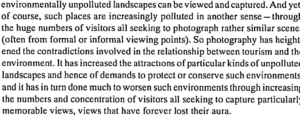The article “America the Marvelous” is very reminiscent of the perspective that Barry Blitt writes. What it reminds me of is a conversation I had with my friend where we agreed that “America wasn’t the greatest country in the world”, which proceeded with a list of reasons why we hate America. But after some time, there was this childlike positivity spark, the kind of spark that makes you think that you can do anything, and we then thought about the sparkly image of America and what really it has done over the years (while still retaining the dull character that comes along with the negatives).
The way that I would describe the beginning of the article is that America is the worst place in the world. This comes down to the naïve nature that Americans pose, and the bias that Americans are all selfish monsters that create what they want and destroy what they do not want. Not that America plays God, but at some points, the attitude feels godlike with the power of a child throwing a tantrum. The childish image of America is really carrying its already tattered image to a whole new level, while the rest of the world is laughing in our faces. The only thing I can laugh about is the fact that Brexit happened, so that is something that I have on Europe as a whole, but I digress.
However, to contrast in the later paragraphs, Blitt attacks the rest of the world for the fact that the old world patronizes the younger nation of America. For instance, in the quote below, there is a great example of America setting the tone for many of the things that the world can take for granted.
“These same people will use every comforting, clever, and ingenious American invention, will demand America’s medicine, wear its clothes, eat its food, drink its drink, go to its cinema, love its music, thank God for its expertise in a hundred disciplines, and will all adore New York. More than that, more shaming and hypocritical than that, these are people who collectively owe their nations’ and their personal freedom to American intervention and protection in wars”
While it never stood out to me, it did kind of shock me when I finally realized that the rest of the world hates America, yet the US stands out as one of the most important countries culturally and economically. The cultural part of this example can be mixed since yes we make and consume products that the rest of the world adores, but that doesn’t counteract the fact that America can be very unsympathetic of other cultures and of other peoples from other cultures. I guess the underlying racism covered up by the positives can be added to the reasons that America sucks so much. Chocolates and flowers can’t cover up the fact that America has a shiny yet stinky culture.
The rest of the articles builds this theme of accomplishments, and what that means in the long run of the image of America and Americans as a whole. While not all people are naïve and selfish, just as not all Americans are lazy and unhealthy, the fact of the matter is that a country like the US is not the most perfect in the world and that when it is all said and done, while hated, America has its influence all over the globe, even if the rest of the world hates it.
